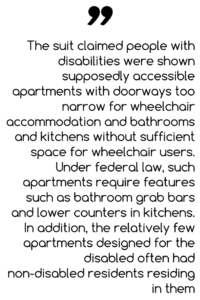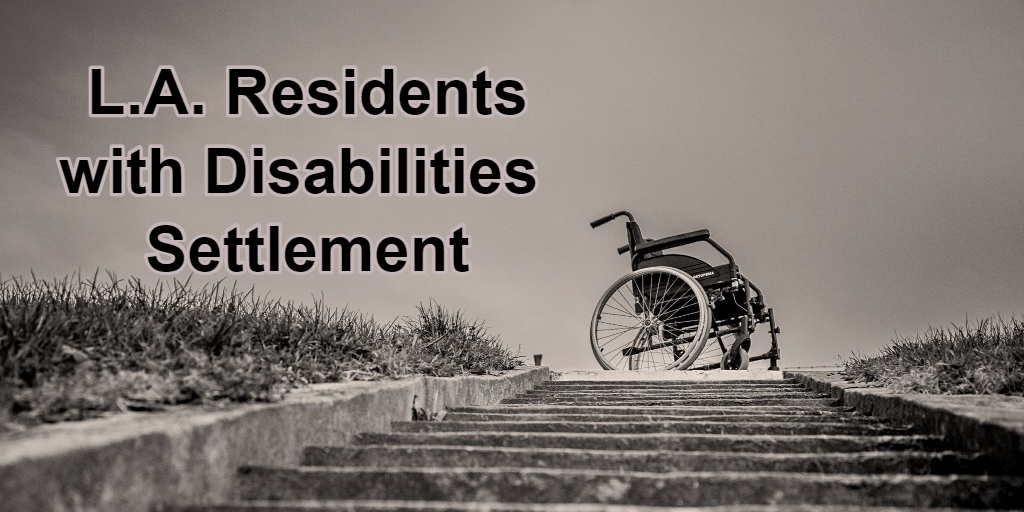In a landmark federal settlement, Los Angeles City Council officials agreed to spend $200 million over the next 10 years to ensure people with disabilities have access to apartments in public housing. A total of 4,000 units will become available to the disabled within the next decade via new construction and redesign of existing dwellings.
The ruling sends a message nationwide that accessible housing is needed for the disabled community. Los Angeles Mayor Eric Garcetti notes that the city stands for inclusiveness and access for all, and the settlement allows it to resolve a “long-standing legal issue with a predictable level of investment.” The settlement does not require the city to admit wrongdoing or concede violation of anti-discrimination statutes. The city must also pay $4.5 million to the nonprofits initiating the suit, as well as $1 million in court costs and up to $20 million in legal fees.
Under the terms of the settlement, Los Angeles must pay at least $20 million annually to ensure that 2,655 of the 4,000 units are wheelchair-accessible. The agreement also requires a larger percentage of affordable housing for the disabled than mandated under current law.
Officials are not certain how far short the city fell in providing housing for the disabled. That information will only come after an evaluation of every unit.
 In 2012, three nonprofit housing organizations filed suit, alleging that the city flouted state and federal anti-discrimination laws regarding housing for the disabled. The suit claimed people with disabilities were shown supposedly accessible apartments with doorways too narrow for wheelchair accommodation and bathrooms and kitchens without sufficient space for wheelchair users. Under federal law, such apartments require features such as bathroom grab bars and lower counters in kitchens. In addition, the relatively few apartments designed for the disabled often had non-disabled residents residing in them. Although complaints were filed, the city and its redevelopment agency reportedly failed to take action.
In 2012, three nonprofit housing organizations filed suit, alleging that the city flouted state and federal anti-discrimination laws regarding housing for the disabled. The suit claimed people with disabilities were shown supposedly accessible apartments with doorways too narrow for wheelchair accommodation and bathrooms and kitchens without sufficient space for wheelchair users. Under federal law, such apartments require features such as bathroom grab bars and lower counters in kitchens. In addition, the relatively few apartments designed for the disabled often had non-disabled residents residing in them. Although complaints were filed, the city and its redevelopment agency reportedly failed to take action.
City Administrative Officer Miguel Santana stated Los Angeles housing officials are taking steps to prevent such issues in the future. Because the settlement goes back into the community in terms of affordable housing units for the disabled, Santana says that Angelenos are “the biggest beneficiaries.”


